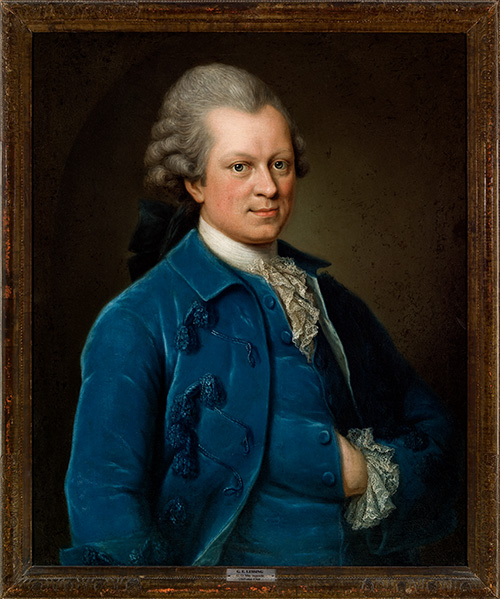Gotthold Ephraim Lessing
(born 1729 in Kamenz – died 1781 in Braunschweig)
"It is not the truth that a man possesses, or believes that he possesses, but the earnest effort which he puts forward to reach the truth, which constitutes the worth of a man."*
Gotthold Ephraim Lessing was convinced that the value of a person should not be measured by their faith, but by their character and actions. Lessing was an important poet and philosopher of the Enlightenment—an epoch of intellectual history whose beginning dates back to the end of the 17th century. In line with many other thinkers of his time, he relied on the power of reason, which was to free humankind from outdated traditions and theological dogmas. The ideal was a self-determined individual who also practised religious tolerance. Since his youth, Lessing fought for a human coexistence in which prejudice and discrimination should have no place. His most famous work is Nathan the Wise (orig. title: Nathan der Weise), in which he created a literary monument to his friend Moses Mendelsohn—today considered the founder of the Jewish Enlightenment. As with Moses Mendelssohn, who faced hostility as a Jew in a Christian-dominated society, the literary figure Nathan fights against the often narrow-minded and exclusive understanding of God during his time. In particular, the so-called “Ring Parable”, in which the equivalence of the three monotheistic religions Judaism, Christianity and Islam is cleverly emphasised, remains a symbol of religious tolerance to this day.
*Lessing, G.E., Über die Wahrheit. Eine Duplik (On the Truth. A Rejoinder), 1778.

